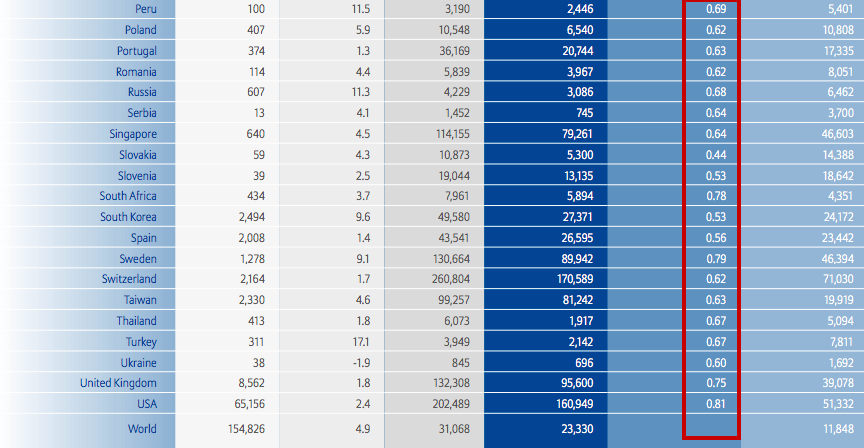Washington Post
Trump’s campaign: Big Macs, screaming fits and constant rivalries
Michael Kranish, The Washington Post December 2, 2017
 © Photo by Chip Somodevilla/Getty Images FILE PHOTO: Republican presidential nominee Donald Trump holds a campaign rally at Pittsburgh International Airport November 6, 2016 in Moon Township, Pa.
© Photo by Chip Somodevilla/Getty Images FILE PHOTO: Republican presidential nominee Donald Trump holds a campaign rally at Pittsburgh International Airport November 6, 2016 in Moon Township, Pa.
Elton John blares so loudly on Donald Trump’s campaign plane that staffers can’t hear themselves think. Press secretary Hope Hicks uses a steamer to press Trump’s pants — while he is still wearing them. Trump screams at his top aides, who are subjected to expletive-filled tirades in which they get their “face ripped off.”
And Trump’s appetite seems to know no bounds when it comes to McDonald’s, with a dinner order consisting of “two Big Macs, two Fillet-O-Fish, and a chocolate malted.”
The scenes are among the most surreal passages in a forthcoming book chronicling Trump’s path to the presidency co-written by Corey Lewandowski, who was fired as Trump’s campaign manager, and David Bossie, another top aide. The book, “Let Trump Be Trump,” paints a portrait of a campaign with an untested candidate and staff rocketing from crisis to crisis, in which Lewandowski and a cast of mostly neophyte political aides learn on the fly and ultimately accept Trump’s propensity to go angrily off message.
“Sooner or later, everybody who works for Donald Trump will see a side of him that makes you wonder why you took a job with him in the first place,” the authors wrote. “His wrath is never intended as any personal offense, but sometimes it can be hard not to take it that way. The mode that he switches into when things aren’t going his way can feel like an all-out assault; it’d break most hardened men and women into little pieces.”
The authors “both had moments where they wanted to parachute off Trump Force One,” but they said they got used to it.
Lewandowski provides a largely admiring portrait of his former boss, saving the skewer for score-settling anecdotes about Paul Manafort, the former campaign chairman and rival whom Lewandowski blames for his ouster. The Post obtained an advance copy of the book, which is scheduled for release on Tuesday.
In a section of the book written by Lewandowski, Trump is described as flying on his helicopter when he learns that Manafort has said “Trump shouldn’t be on television anymore, that he shouldn’t be on the Sunday shows” and that Manafort should appear instead. Trump was angrier than Lewandowski had ever seen him, ordering the pilot to lower the altitude so he could make a cellphone call.
“Did you say I shouldn’t be on TV on Sunday? I’ll go on TV anytime I g–dam f—ing want and you won’t say another f—ing word about me!” Trump yelled at Manafort, according to Lewandowski. “Tone it down? I wanna turn it up! . . . You’re a political pro? Let me tell you something. I’m a pro at life. I’ve been around a time or two. I know guys like you, with your hair and skin . . .”
Lewandowski called it “one of the greatest takedowns in the history of the world.”
The aide’s satisfaction at the takedown didn’t last long, however, as he “immediately got a phone call” from Trump’s son-in-law, Jared Kushner, “telling me I wasn’t a team player and that I’d thrown Paul under the bus.” Lewandowski wrote that Manafort soon arranged for him to be fired.
But Manafort’s days were numbered as well, especially after Breitbart News executive Stephen K. Bannon became an adviser to the campaign and set his sights on ousting the campaign chairman.
In one of the most striking passages of the book, the co-authors describe a scene in which Bannon is read the first few paragraphs of a forthcoming story by a New York Times reporter laying out allegations that Manafort had received a $12.7 million payment from a Ukrainian political party. The encounter occurred at Manafort’s apartment in Trump Tower, where, the co-authors write, an unnamed woman in a white muumuu “lounged” on the couch.
“Does Trump know about this?” Bannon asked, according to the book.
“What’s to know, it’s all lies,” Manafort replied.
The woman on the couch “imploringly” asked, “Paul?” Manafort responded, according to the book, “It was a long time ago. I had expenses.”
The authors write that “Bannon knew what he had in his hand. It was an explosive, page one story.”
Notwithstanding his constant praise of Trump, Lewandowski offers a window into the president’s toughness on those who work nonstop on his behalf. Lewandowski wrote of a time when he was so ill that he fell asleep on a plane, only to be awakened by Trump, saying, “Corey, if you can’t take it, we’ll get somebody else.” He described a meeting in which Trump told another campaign official, Brad Parscale, that “You don’t have to listen to Corey anymore. He’s no longer your boss.”
[From ‘Access Hollywood’ to Russia, Trump seeks to paint the rosiest picture]
Lewandowski wrote that “the cut was deep, but it was only one of a thousand.”
Trump left it to his son Don Jr. to fire him, Lewandowski wrote.
In another episode, Lewandowski describes how staffer Sam Nunberg was purposely left behind at a McDonald’s because Nunberg’s special-order burger was taking too long. “Leave him,” Trump said. “Let’s go.” And they did.
Trump’s fast-food diet is a theme. “On Trump Force One there were four major food groups: McDonald’s, Kentucky Fried Chicken, pizza and Diet Coke,” the authors write.
The plane’s cupboards were stacked with Vienna Fingers, potato chips, pretzels and many packages of Oreos because Trump, a renowned germaphobe, would not eat from a previously opened package.
The book notes that “the orchestrating and timing of Mr. Trump’s meals was as important as any other aspect of his march to the presidency,” and describes the elaborate efforts that Lewandowski and other top aides went through to carefully time their delivery of hot fast food to Trump’s plane as he was departing his rallies.
Lewandowski’s description of campaign spokeswoman Hope Hicks, who is now White House communications director, underscored the untested nature of the campaign and its personnel. He describes Hicks, a competitive athlete and former model, as “smart and private, with a nearly photographic memory.”
But, he writes, when Trump asked Hicks to join him on a campaign trip, she was working for the Trump Organization as a public relations official. So, the authors wrote, when she was first asked to be press secretary, she responded, in reference to a Trump property, “Which one? The Doral marketing campaign?”
“No, my presidential campaign! I’m running for president,” Trump responded, according to the book.
One of Hicks’s jobs was to make sure that Trump’s suits were pressed when they flew on his plane.
“ ‘Get the machine!’ ” Trump would yell, according to the book. “And Hope would take out the steamer and start steaming Mr. Trump’s suit, while he was wearing it! She’d steam the jacket first and then sit in a chair in front of him and steam his pants.”
One day, when Hicks forgot the steamer, Trump became angry.
“G–dammit, Hope! How the hell could you forget the machine?”
The authors wrote, “It was a mistake she would never make again.”
It was Hicks who, on Oct. 7, took a call from a Washington Post reporter about a video from “Access Hollywood” in which Trump boasted about how he could “grab” women “by the p—y.” Trump looked at a transcript and said “that doesn’t sound like something I would say.” It was Bossie, who served as the deputy campaign manager, who played the video for Trump on his iPad. The campaign came up with the response that it was “locker room” talk.
The authors wrote that as panic ensued among some Republicans, the party’s national chairman, Reince Priebus, decided not to show up at a New York City meeting. Bannon called Priebus, asking, “Where the hell are you?”
“I got off the train in Newark,” Priebus responded, according to the book. “I’m going to turn around.” The book notes that Priebus has said he always intended to come to the meeting.
As Bannon tried to convince him that everything was all right, Priebus said that Republicans were abandoning the candidate. “It’s horrible . . . people are dropping like flies,” Priebus said, according to the book. Once he arrived at the meeting, Priebus said that Trump would either “lose the biggest electoral landslide in American history” or should drop out of the race.
“First of all,” Trump responded, according to the book, “I’m going to win. And second, if the Republican Party is going to run away from me, then I will take you all down with me. But I’m not going to lose.”
Ashley Parker and Philip Rucker contributed to this report.








 © Photo by Chip Somodevilla/Getty Images FILE PHOTO: Republican presidential nominee Donald Trump holds a campaign rally at Pittsburgh International Airport November 6, 2016 in Moon Township, Pa.
© Photo by Chip Somodevilla/Getty Images FILE PHOTO: Republican presidential nominee Donald Trump holds a campaign rally at Pittsburgh International Airport November 6, 2016 in Moon Township, Pa.